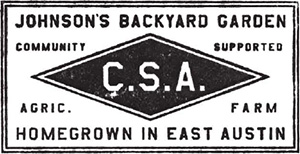
FTFP: SO, YOU WANT TO BE AN ORGANIC FARMER...
08/28/15 — Farm
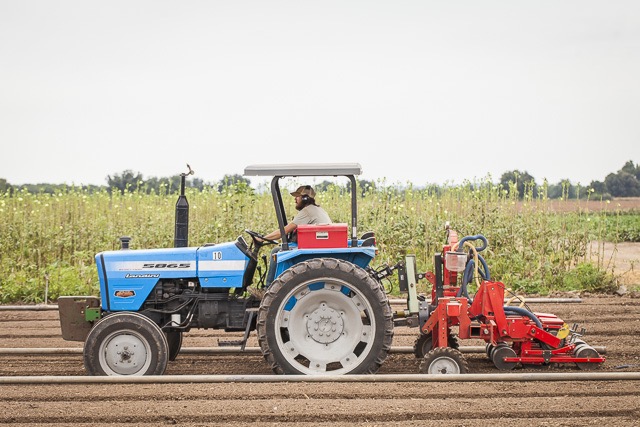 Photo by Scott David Gordon
Photo by Scott David Gordon
From the Farmer's Perspective: So, You Want to be an Organic Farmer...
Here at JBG, we get a lot of emails from aspiring young people wanting to try their hand at farming, and looking for a place to start. There are so many different paths into farming, and this week I wanted to feature 4 things you can do if you're interested in owning your own farm some day:1. Try your hand for a day as a farmer.
Did you know that JBG offers volunteer slots at both of our locations - at our Hergotz packing and processing barn, and also at our Garfield Farm, where you can work in our greenhouses or out in the fields. Before you take the next step in starting your own farm, it's important to make sure the lifestyle is one that suits you. Farming is hard work, and more often than not it is extremely un-glamorous. Become a regular volunteer and you'll learn a lot from our staff, who have been doing this for years. We now have Saturday and Sunday volunteer shifts available in our greenhouse!
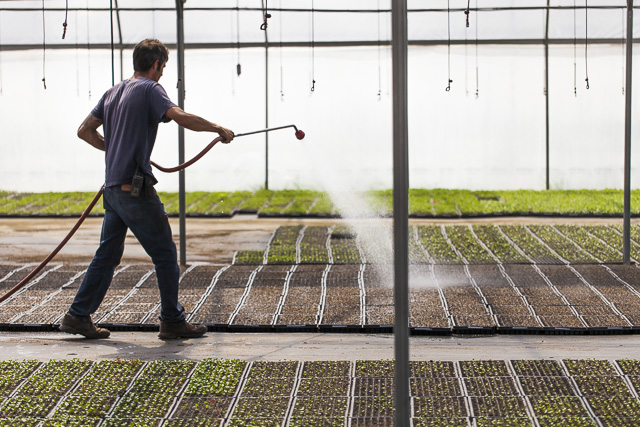 Our Greenhouse Manager, Brandon, waters transplants for Fall. Photo by Scott David Gordon
Our Greenhouse Manager, Brandon, waters transplants for Fall. Photo by Scott David Gordon
Email volunteer@jbgorganic.com to sign up for a volunteer shift and we'll be sure to send you home with lots of organic veggies for you and your family.
2. Intern or work at an organic farm.
One great way to learn how to farm is by taking an internship or apprenticeship at another farm, working side by side for a full season/year with an experienced farmer. Not only does this give you the practical experience of a full gamut of weather conditions, soil preparations, planting, cultivating, and harvesting throughout a season, but by working with someone who has been farming for years, you'll have the opportunity to ask questions and learn from an expert. Your internship will prepare you for paid jobs on other farms to continue gaining experience in agriculture on your way to starting your own farm. Interested in working for a farm here in town? We're hiring for a number of positions at JBG! Check them out here.
When looking for an intern- or apprenticeship, you have a lot of options to consider: Location? Small or large farm? CSA model or wholesale? Veggies, fruit, livestock, or a mix? Urban or rural? There are endless options available to you. Other things to consider - does the farm provide living quarters? Stipend? What is the teaching style of the farmer?
The National Center for Appropriate Technology (NCAT) has a wonderful list of farm opportunities, searchable by state, accessible here. World Wide Opportunities on Organic Farms (WWOOF) also has opportunities for short- and long-term farming opportunities all around the world.
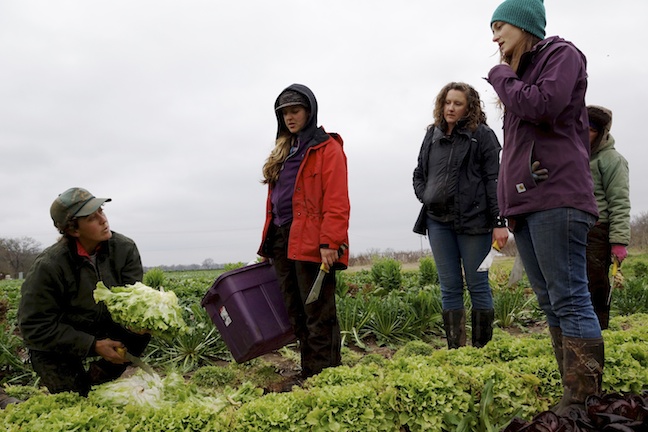 Farmshare students harvest lettuce.
Farmshare students harvest lettuce.
3. Enroll in Farm School!
One potential downfall of the apprenticeship model is the lack of dedicated "education" time on the farm -- at the end of the day, there is an endless amount of work to do on most farms, so your education will have to be very hands-on, in the field. This model definitely works for some folks, but for others, it might not be enough to gain a true understanding of the bigger farm ecosystem, or other aspects of a farm such as business development. If you're looking for a slightly more formal introduction to farming, there are a new crop of farmer education programs popping up all over the country - and central Texas is a hotspot!
No doubt by now you've heard us mention Farmshare Austin. This local non-profit has just closed their application process for it's second class of aspiring farmers for a six-month intensive education program in organic agriculture. Don't worry, interested farmers can also apply for their Spring class before January! In addition to the field experience of running an organic farm, Farmshare students are given 200 hours of dedicated classroom education time, covering topics from soil management, to crop planning, to business development.
Austin Community College has also launched its own Sustainable Agriculture program, set to launch this fall with its own dedicated educational farm at the ACC Elgin campus. This two-semester course will guide students through farm an business planning with an impressive set of teachers and lecturers from the Austin farming community.
There are a plethora of other farm schools throughout the country, from the UC Santa Cruz Center for Agroecology to Appalachian State's Agroecology and Sustainable Agriculture degree, and many other options between the two coasts.
4. Get started in your own backyard - or a neighbors!
Most of you have probably heard the story by now of my backyard hobby getting out of control, which led to the beginning of JBG as it exists today. I encourage you to start gardening or farming wherever you have the opportunity! This might be in your backyard, on a family member's piece of unused land, or by paying/trading a friend or neighbor (maybe in vegetables!) to use some space that would sit fallow otherwise. Land access is one of the most difficult barriers facing aspiring young farmers today, but don't let that stop you from growing your own food and practicing your growing skills NOW. We'll be here to fill in the gaps to keep your fridge stocked with organic goodies year-round.
To hear more of the farmer's perspective, follow @farmerbrenton on Facebook and Instagram
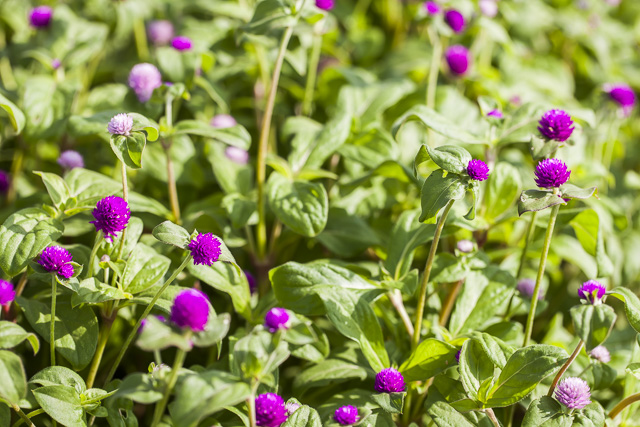 Flowers soaking up the sun. Photo by Scott David Gordon.
Flowers soaking up the sun. Photo by Scott David Gordon.





 0 ITEMS IN CART
0 ITEMS IN CART 
